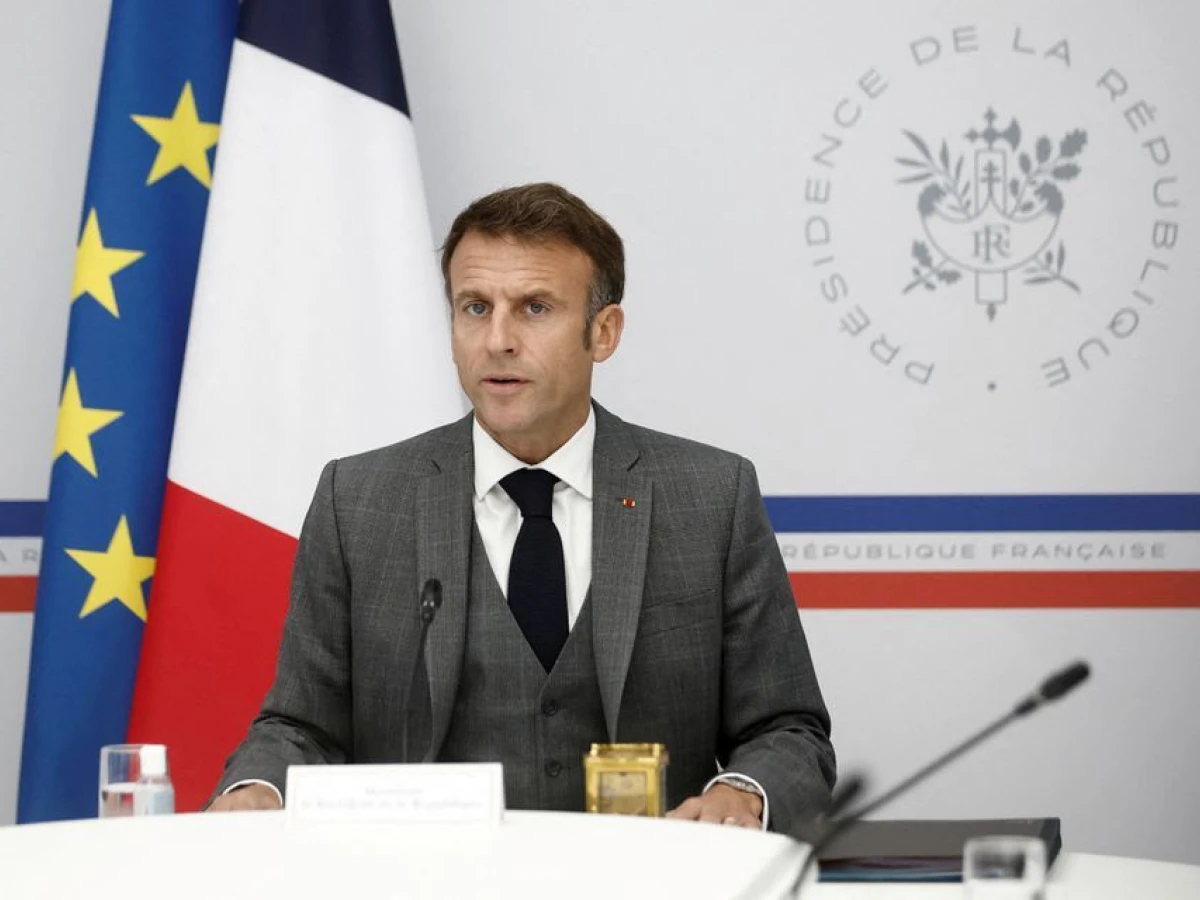
Macron flies to Israel to push for humanitarian truce, proposals
The French leader will have to tread a fine line during his tour of the region.
PARIS, Oct 23 (Reuters) - French President Emmanuel Macron flies to Israel on Tuesday at a delicate juncture of its conflict with Hamas, coming with proposals and pushing for a humanitarian truce despite a looming ground offensive into Gaza.
His advisers said that beyond showing solidarity with Israel, Macron wanted to make "proposals that are as operational as possible" to prevent an escalation, free hostages, guarantee Israel's security and work towards a two-state solution.
The French leader upped the ante before the trip, telling reporters he would only travel to the region if he thought the visit would be "useful".
Declining to elaborate on what these proposals could be, a Macron adviser only said in a briefing to reporters there were things that could be done so that Israel doesn't feel alone in its fight against terrorism.
Macron will meet with Israeli Prime Minister Benjamin Netanyahu, Israeli President Isaac Herzog, and centrist leaders Benny Gantz and Yair Lapid for the opposition.
However, although he has worked the phones and spoken to the leaders of Israel, Egypt, Saudi Arabia, Iran and Qatar since the Oct. 7 attack by Hamas militants, his visit comes late, days after his American, British, German and Italian counterparts.
Macron's ability to influence events in the region now seems limited by what some analysts say is a shift towards a more pro-Israel Anglo-American line, in contrast with the traditionally distinctive and more pro-Arab French Gaullist approach.
"France's soft power south of the Mediterranean has considerably faded," Karim Emile Bitar, a Beirut-based foreign policy expert at French think tank IRIS, told Reuters.
"We're under the impression that nothing distinguishes France from other Western countries now, which wasn't historically the case, and is shocking to public opinion in the Arab world," he said.
The French government's decision to adopt a blanket ban on pro-Palestinian protests in France, before it was struck down by courts, is one of the reasons why Macron has lost credit in the Arab world, he said.
French officials contest the idea that Macron's policy is biased, however. They say Macron has constantly reaffirmed the rights of Palestinians and the position of a two-state solution. "It's a goal France has never veered from," the adviser said.
A meeting with Palestinian leader Mahmoud Abbas was "most likely" as well as a stop-over in one or more Arab capitals in the region, French officials said.
But Macron is also constrained by an explosive situation at home and the fact a number of French nationals are likely held hostage by Hamas.
Thirty French citizens were killed on Oct. 7 and seven are still missing. One appeared in a video released by Hamas, but the fate of the other six remains unknown.
Macron has vowed on national television that France would "not abandon any of its children" in Gaza. He told reporters he hoped Qatar's mediation could help free hostages.
Macron's visit will also take a special resonance at home, where France's large Muslim and Jewish communities are on tenterhooks following the killing of a teacher by an Islamist militant that French officials have linked to the events in Gaza.
The French leader will have to tread a fine line during his tour of the region, the Israeli-Palestinian conflict having often stoked tension back home and France's fractious opposition being ready to pounce on any faux pas.




